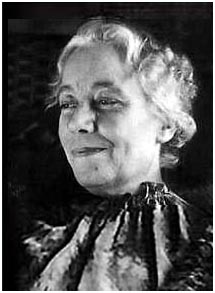Faith is confidence or trust in a person, thing, or concept. In the context of religion, faith is "belief in God or in the doctrines or teachings of religion". According to the Merriam-Webster's Dictionary, faith has multiple definitions, including "something that is believed especially with strong conviction", "complete trust", "belief and trust in and loyalty to God", as well as "a firm belief in something for which there is no proof".

Sociology of religion is the study of the beliefs, practices and organizational forms of religion using the tools and methods of the discipline of sociology. This objective investigation may include the use both of quantitative methods and of qualitative approaches.

The relationship between religion and science involves discussions that interconnect the study of the natural world, history, philosophy, and theology. Even though the ancient and medieval worlds did not have conceptions resembling the modern understandings of "science" or of "religion", certain elements of modern ideas on the subject recur throughout history. The pair-structured phrases "religion and science" and "science and religion" first emerged in the literature during the 19th century. This coincided with the refining of "science" and of "religion" as distinct concepts in the preceding few centuries—partly due to professionalization of the sciences, the Protestant Reformation, colonization, and globalization. Since then the relationship between science and religion has been characterized in terms of "conflict", "harmony", "complexity", and "mutual independence", among others.

Erich Seligmann Fromm was a German-American social psychologist, psychoanalyst, sociologist, humanistic philosopher, and democratic socialist. He was a German Jew who fled the Nazi regime and settled in the United States. He was one of the founders of The William Alanson White Institute of Psychiatry, Psychoanalysis and Psychology in New York City and was associated with the Frankfurt School of critical theory.

Abraham Harold Maslow was an American psychologist who created Maslow's hierarchy of needs, a theory of psychological health predicated on fulfilling innate human needs in priority, culminating in self-actualization. Maslow was a psychology professor at Brandeis University, Brooklyn College, New School for Social Research, and Columbia University. He stressed the importance of focusing on the positive qualities in people, as opposed to treating them as a "bag of symptoms". A Review of General Psychology survey, published in 2002, ranked Maslow as the tenth most cited psychologist of the 20th century.
Humanistic psychology is a psychological perspective that arose in the mid-20th century in answer to two theories: Sigmund Freud's psychoanalytic theory and B. F. Skinner's behaviorism. Thus, Abraham Maslow established the need for a "third force" in psychology. The school of thought of humanistic psychology gained traction due to Maslow in the 1950s.

Authenticity is a concept of personality in the fields of psychology, existential psychotherapy, existentialist philosophy, and aesthetics. In existentialism, authenticity is the degree to which a person's actions are congruent with their values and desires, despite external pressures to social conformity. The conscious self comes to terms with the condition of Geworfenheit, of having been thrown into an absurd world not of their own making, thereby encountering external forces and influences different from and other than the Self. A person’s lack of authenticity is considered bad faith in dealing with other people and with one's self; thus, authenticity is in the instruction of the Oracle of Delphi: “Know thyself.” Concerning authenticity in art, the philosophers Jean Paul Sartre and Theodor Adorno held opposing views and opinions about jazz, a genre of American music; Sartre said that jazz is authentic and Adorno said that jazz is inauthentic. Many musical subcultures require artistic authenticity, lest the community consider an artist to be a poseur for lacking authenticity ; artistic authenticity is integral to many genres of music, including but not limited to genres of rock, club music, and hip-hop.
Psychology of religion consists of the application of psychological methods and interpretive frameworks to the diverse contents of religious traditions as well as to both religious and irreligious individuals. The various methods and frameworks can be summarized according to the classic distinction between the natural-scientific and human-scientific approaches. The first cluster amounts to objective, quantitative, and preferably experimental procedures for testing hypotheses about causal connections among the objects of one's study. In contrast, the human-scientific approach accesses the human world of experience using qualitative, phenomenological, and interpretive methods. This approach aims to discern meaningful, rather than causal, connections among the phenomena one seeks to understand.
Neo-Freudianism is a psychoanalytic approach derived from the influence of Sigmund Freud but extending his theories towards typically social or cultural aspects of psychoanalysis over the biological.
The God gene hypothesis proposes that human spirituality is influenced by heredity and that a specific gene, called vesicular monoamine transporter 2 (VMAT2), predisposes humans towards spiritual or mystic experiences. The idea has been proposed by geneticist Dean Hamer in the 2004 book called The God Gene: How Faith is Hardwired into our Genes.

Humanism is a philosophical stance that emphasizes the individual and social potential, and agency of human beings, whom it considers the starting point for serious moral and philosophical inquiry.

Unconditional love is known as affection without any limitations, or love without conditions. This term is sometimes associated with other terms such as true altruism or complete love. Each area of expertise has a certain way of describing unconditional love, but most will agree that it is that type of love which has no bounds and is unchanging.

The Art of Loving is a 1956 book by psychoanalyst and social philosopher Erich Fromm. It was originally published as part of the World Perspectives series edited by Ruth Nanda Anshen. In this work, Fromm develops his perspective on human nature from his earlier works, Escape from Freedom and Man for Himself – principles which he revisits in many of his other major works. He criticizes the popular conception of love and asserts that "love is the only provision for a sane and satisfying human existence".

Buddhism includes an analysis of human psychology, emotion, cognition, behavior and motivation along with therapeutic practices. Buddhist psychology is embedded within the greater Buddhist ethical and philosophical system, and its psychological terminology is colored by ethical overtones. Buddhist psychology has two therapeutic goals: the healthy and virtuous life of a householder and the ultimate goal of nirvana, the total cessation of dissatisfaction and suffering (dukkha).
Eastern philosophy in clinical psychology refers to the influence of Eastern philosophies on the practice of clinical psychology.
The evolutionary psychology of religion is the study of religious belief using evolutionary psychology principles. It is one approach to the psychology of religion. As with all other organs and organ functions, the brain's functional structure is argued to have a genetic basis, and is therefore subject to the effects of natural selection and evolution. Evolutionary psychologists seek to understand cognitive processes, religion in this case, by understanding the survival and reproductive functions they might serve.

Karen Horney was a German psychoanalyst who practiced in the United States during her later career. Her theories questioned some traditional Freudian views. This was particularly true of her theories of sexuality and of the instinct orientation of psychoanalysis. She is credited with founding feminist psychology in response to Freud's theory of penis envy. She disagreed with Freud about inherent differences in the psychology of men and women, and like Adler, she traced such differences to society and culture rather than biology.
Yaakov Malkin was an Israeli educator, literary critic, and professor emeritus in the Faculty of Arts at Tel Aviv University. He was active in several institutions that deal with both cultural and Humanistic Judaism.
Sigmund Freud's views on religion are described in several of his books and essays. Freud considered God as a fantasy, based on the infantile need for a dominant father figure, with religion as a necessity in the development of early civilization to help restrain our violent impulses, that can now be discarded in favor of science and reason.
Spirituality affects both mental and physical health outcomes in the general United States population across different ethnic groups. Because of the nuanced definitions of spirituality and religiosity, the literature on spirituality is not consistent in definitions or measures resulting in a lack of coherence. However, taken as a whole, research tends to show that the effect of spirituality is positive, associated with better health outcomes. For those who engage in spirituality, it may serve as a buffer from negative life events, often moderating the relationship between negative life experiences and levels of anxiety or depression. The exception is when negative spiritual coping is practiced. This type of coping has negative health implications.










